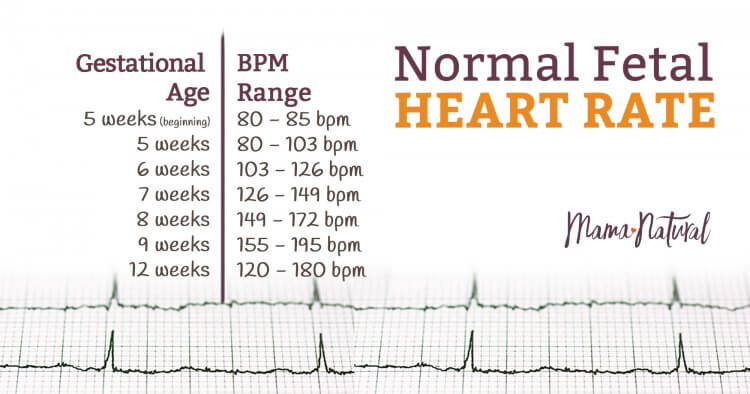
High Fetal Heart Rate. Current international guidelines recommend for the normal fetal heart rate FHR baseline different ranges of 110 to 150 beats per minute bpm or 110 to 160 bpm. Up until this point the heart has been beating spontaneously In three more weeks by around week 20 you can hear your babys heartbeat with a stethoscope. However a low level of sugar in the blood contributes to a low fetal heart rate. Other expected surgery-related complications include blood.
:max_bytes(150000):strip_icc()/what-is-a-normal-fetal-heart-rate-2758733-f94943e4bcb1407e83213fc6d832f782.png)
If your doc needs a better listen and view he or she may recommend that you get a fetal echocardiogram a special ultrasound that evaluates the fetal heart between 18 and 24 weeks. Fetal tachycardia is defined as a heart rate greater than 160-180 beats per minute bpm. The survival rate for the. At this point a normal fetal heart rate is about the same as the mothers. If the heart rate is below 140 BPM then the chances are that the baby will be a boy. Following this the heartbeat becomes normal and stabilizes between 120 and 160bpm during the second and third trimesters.
These can also affect the babys heart rate.
From this point it will increase its rate of about three beats per minute per day during that first month. Following this the heartbeat becomes normal and stabilizes between 120 and 160bpm during the second and third trimesters. These can include tachycardiaan increased heart rateor bradycardia which is a slowed heartbeat. Current international guidelines recommend for the normal fetal heart rate FHR baseline different ranges of 110 to 150 beats per minute bpm or 110 to 160 bpm. It is measurable sonographically from around 6 weeks and the normal range varies during gestation increasing to around 170 bpm at 10 weeks and decreasing from then to around 130 bpm at term. It will then rise and peak around the 9th and 10th week to 170 bpm.